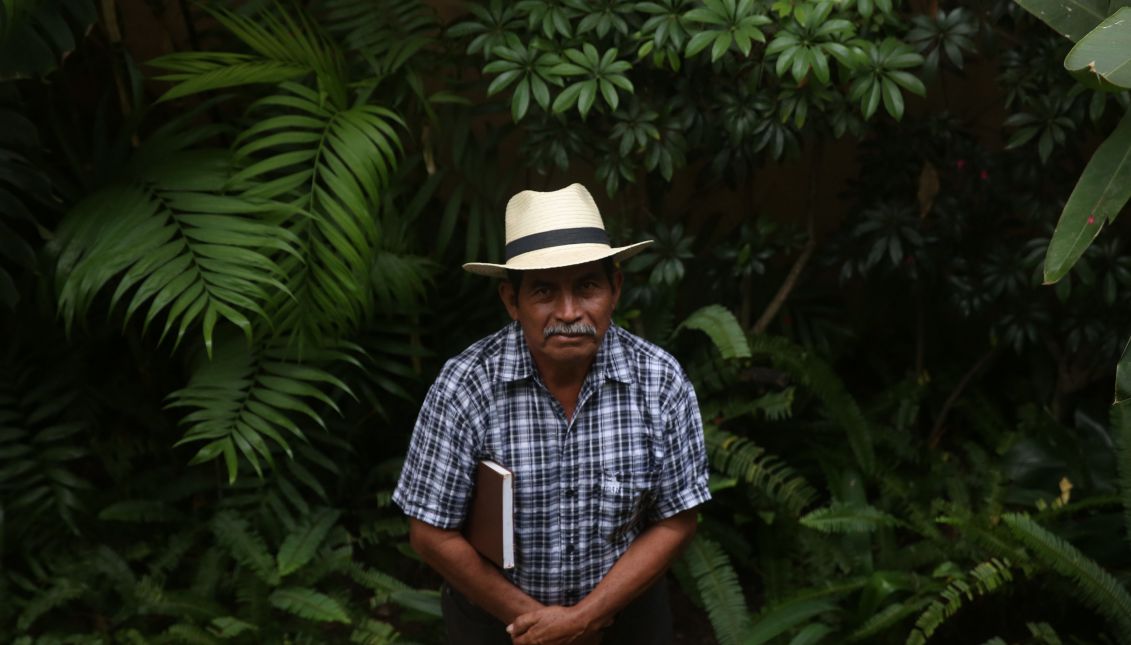
A Guatemalan indigenous land rights activist wins the Goldman Environmental Prize
Rodrigo Tot, born in central Guatemala during the mining boom of the 1960s, spent much of his 59 years in a tenacious battle against the mining industry in the…
A Guatemalan Indian who was born in central Guatemala during the mining boom of the 1960s and has spent much of his 59 years in a tenacious battle against the mining industry in the Lake Izabal region, has been awarded the Goldman Environmental Prize for his conviction that the fight to save the Earth is the most important.
Indigenous leader Rodrigo Tot told EFE in an interview that "I feel happy as a leader of my community because I know that through our struggle we will achieve our goal," adding that despite the threats against his family, seemingly a permanent part of his life, he will never be intimidated.
He lost his parents when still a child, so at age 12 he went to live with relatives in Agua Caliente. That small village was his home, the place he grew up to be the leader he is, and in 2002 the Q'eqchi, descendants of the Maya, elected him to be their leader.
From that moment he guided his community to a court decision that set a historic precedent: it ordered the government to issue property titles to the Q'eqchi people and kept the environmentally destructive nickel industry from expanding into their community.
A man of few words but sharp and to the point in his speech, Tot, who never received a formal education and who learned to speak Spanish listening to others, recalled how government officials and executives of Hudbay Minerals, the company that operates the Fenix nickel mine, never spoke with the indigenous community.
They came and got down to business. The Q'eqchi only found out about it when the miners came and went to work. The Indians saw the lands they lived off of threatened and were afraid.
But with the help of the Indigenous Law Resource Center and O'eqchi Ombud, a small human-rights organization, they achieved the seemingly impossible.
The Guatemalan Constitutional Court confirmed the people's right to collective ownership - between 1985-2002 they had paid 32,350 quetzals (some $4,000) for more than 1,300 hectares (3,200 acres) - and ordered the government to replace the "missing" pages in the property registry (they had been torn out) and to issue the corresponding property titles.
Despite the court's decision, the government never enforced that ruling.
RELATED CONTENT
And the price paid by Tot was steep. Without lifting his eyes from the ground, he recalled how on Oct. 1, 2012, the eldest of his five sons was slain, leaving behind four little orphans.
The Inter-American Commission on Human Rights (IACHR) ruled preventive measures against the mining operation in his favor, but they were also ignored. The only thing that kept him going was his close-knit family and certain positive results: "We got a lot of support. You start with you family and from there you start seeing an expansion of positive results."
An ardent believer in the Bible and a preacher for more than 37 years, Tot has no fear of what might happen to him and is perfectly aware that, from one moment to the next, "they'll make me disappear." Even so, he said the struggle must be continued by the next generation.
His attorney, Carlos Antonio POP, was most emphatic in his resentment. The "Russians," he said, are dead set on getting the uranium in the area, and so much money could be involved that all the rest - the court sentence, the murder of Tot's son and everything else could end up in limbo. The race for uranium is not even being investigated.
Meanwhile local water resources are dwindling and the Indians' crops seem almost irrevocably damaged.
But Tot is still a fighter, and the Goldman Environmental Prize, he said, is an acknowledgment not only of his but also of the community's engagement in "the biggest fight in the world, for the Earth."
The campaign for justice has not come without great personal risk. Previous Goldman prize winners such as Berta Cáceres have been killed in Latin America, which rights groups say is the most dangerous region to be an environmentalist.










LEAVE A COMMENT:
Join the discussion! Leave a comment.